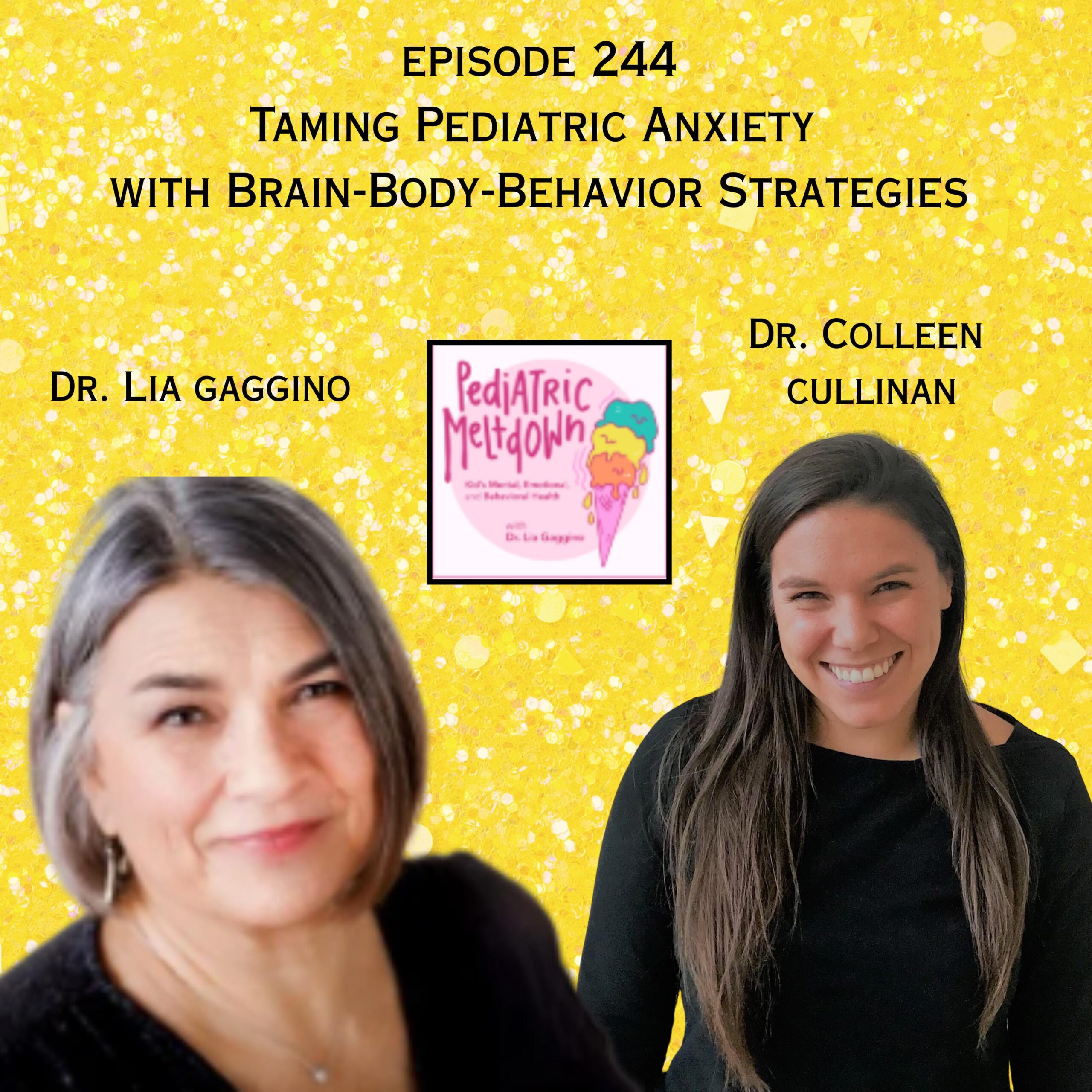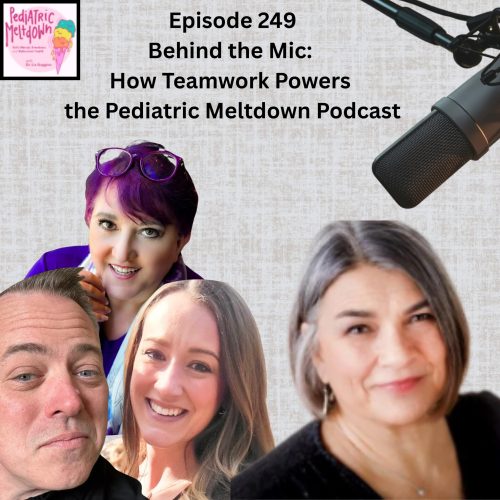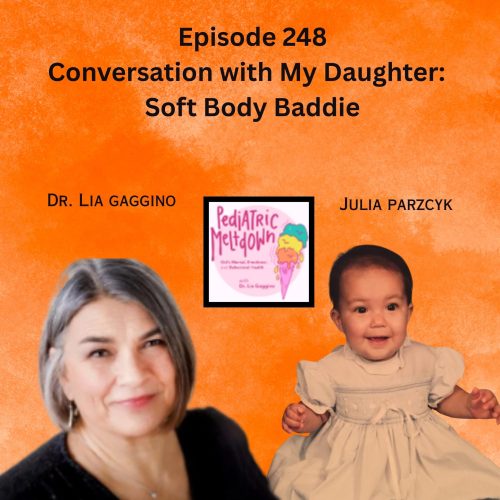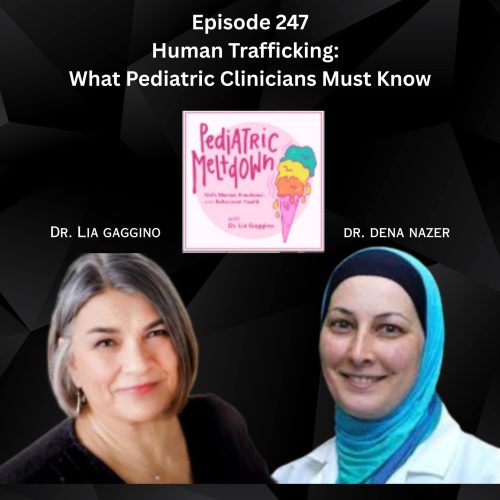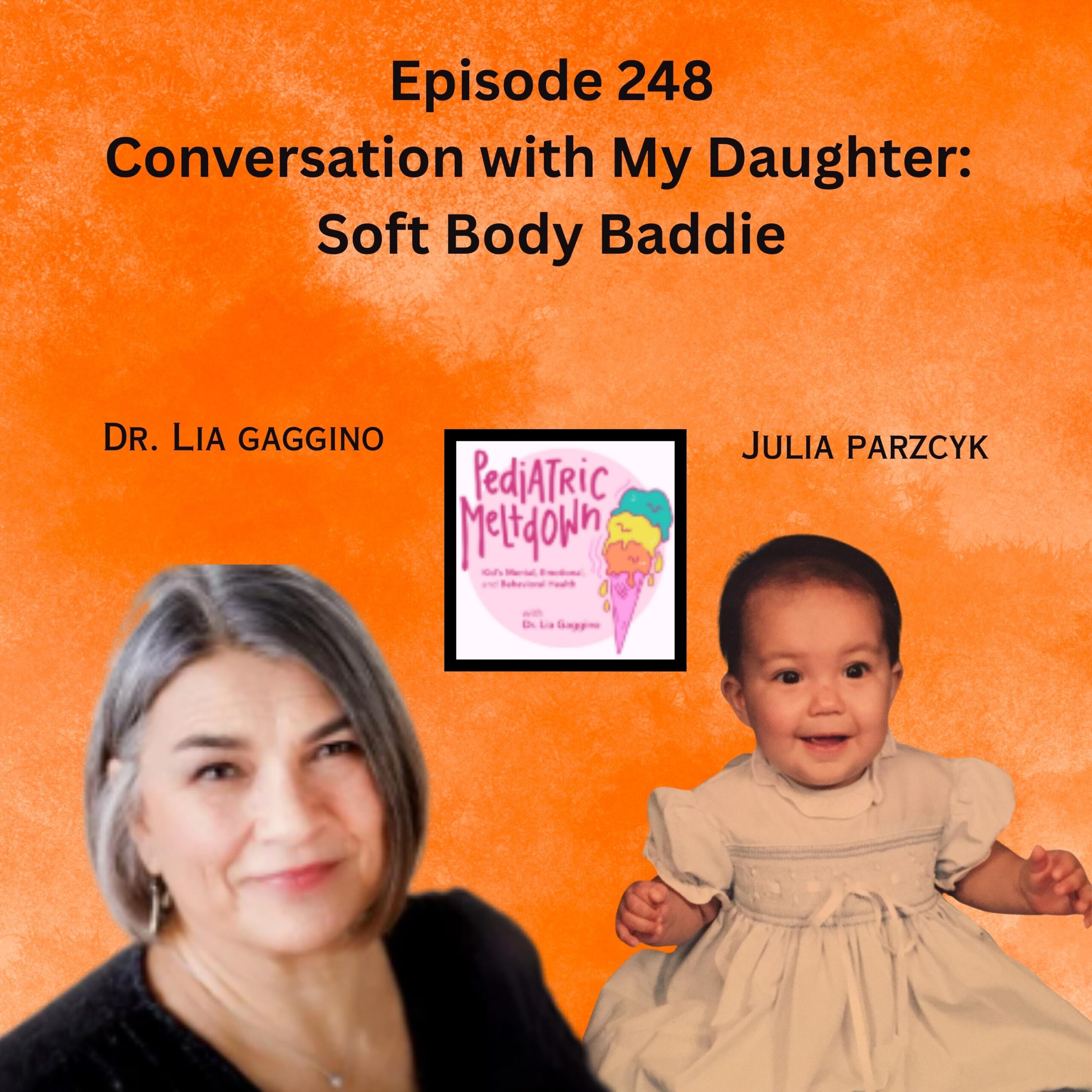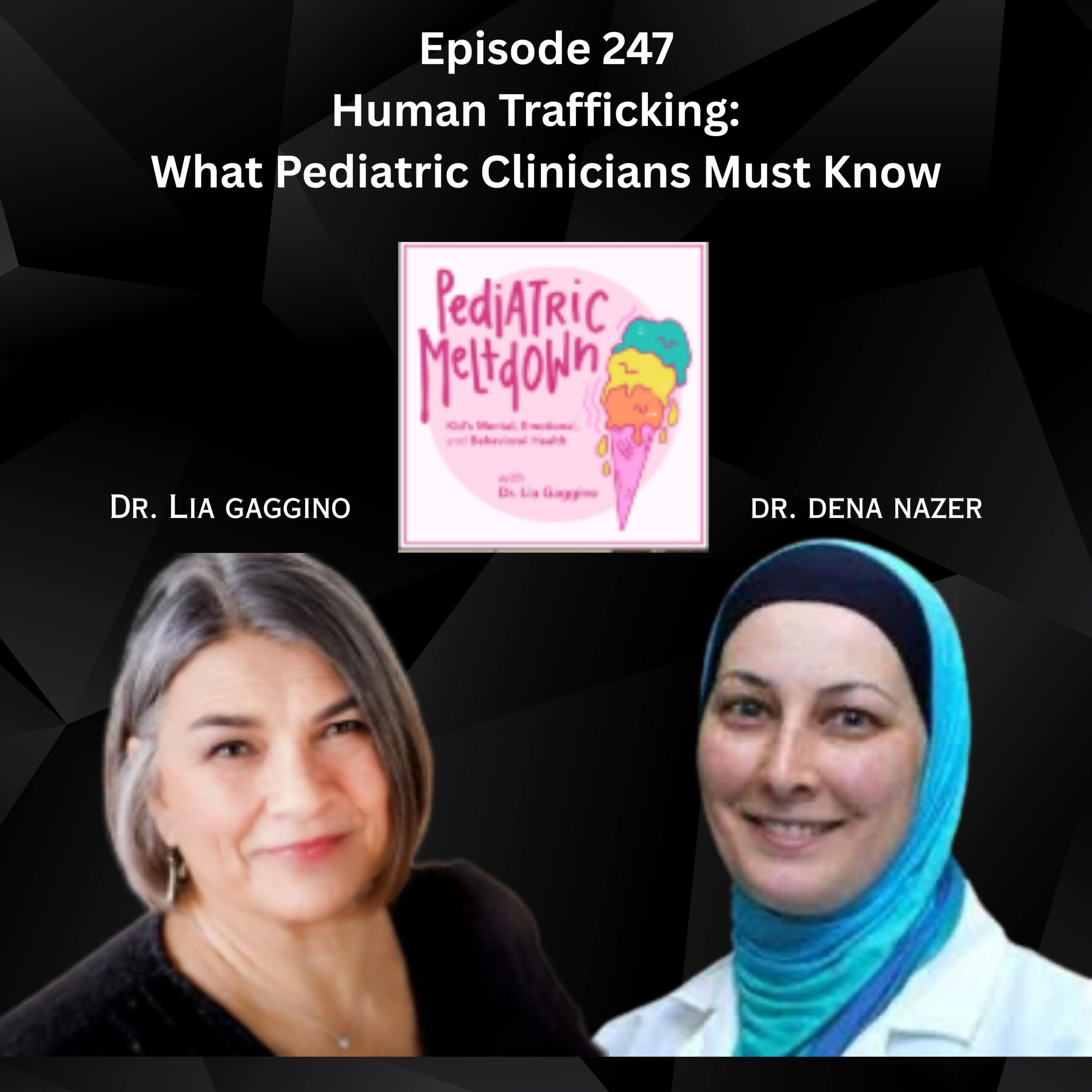Taming Pediatric Anxiety with Brain-Body-Behavior Strategies
Have you ever wondered why anxiety in children can look and feel so physical—and what we as pediatricians, parents, or caregivers can do about it?
We’re visiting a fan favorite from Episode #26 of Pediatric Meltdown, Dr. Lia Gaggino sits down with Dr. Colleen Cullinan, a leading pediatric psychologist, to dissect the powerful 3 B’s approach: Brain, Body, and Behavior. Together, they reveal eye-opening truths about integrated behavioral health, the ways anxiety manifests in kids, and practical, actionable strategies for managing emotional meltdowns in real-time.
This is not just about recognizing anxiety—it’s about transforming how we support kids inside and outside the exam room. If you want to empower families, level up your clinical skills, and make a tangible difference, don’t miss this conversation.
This episode could change the way you think about pediatric care—forever.
[00:00 – 11:35] Integrated Care Foundations: Building Partnerships in Pediatric Practice
- Integrated behavioral health bridges the gap between physical and mental health, creating seamless care experiences for families.
- Primary care is often the first—and sometimes only—entry point for children facing emotional or behavioral challenges.
- Partnerships between pediatricians and behavioral health providers increase accessibility, reduce stigma, and foster earlier intervention.
- The synergy and trust between pediatricians and psychology professionals leads to holistic, effective patient care.
[11:36 – 15:49] The Role of Primary Care in Managing Anxiety and Emotional Health
- Primary care providers serve as trusted anchors, introducing mental health as an essential component of overall health.
- Familiarity with a child’s history allows pediatricians to recognize subtle behavior changes and collaborate meaningfully with behavioral specialists.
- Normalizing physical symptoms of anxiety (like stomachaches and headaches) helps bridge conversations from medical to emotional concerns.
- Educating families on the inseparability of physical and emotional health empowers them to seek support without shame.
[15:50 – 28:55] Anxiety Explained: The 3 B’s and Practical Strategies for Kids
- The “3 B’s”: Brain, Body, and Behavior, are interlinked—anxiety in the brain triggers body sensations, which guide behavior, often leading to avoidance.
- Psychoeducation is key: Emphasizing to families and youth that everyone experiences anxiety validates their feelings and reduces shame.
- Simple, actionable distress tolerance tools—breathing exercises, grounding techniques (like the “five senses” method), and focusing attention—can be taught in minutes during a regular visit.
- Providers can help children recognize “worry thoughts” and redirect their response before anxiety spirals into withdrawal or meltdown.
[28:56 – 49:20] When to Escalate: Distress Tolerance, Prevention, and Team-Based Solutions
- Distress tolerance techniques can bridge the gap until a child can access specialized behavioral care—or be sufficient for milder cases.
- Functional impairment is the marker for when anxiety moves from “manageable” to requiring traditional CBT or higher-level intervention.
- Exposure therapy explained: At its core, CBT for anxiety involves identifying fears and encouraging gradual, manageable exposure to them, with improvement through repetition.
- Advocacy for integrated behavioral health, resource sharing, and ongoing partnerships with community therapists are essential for sustainable, high-impact child mental health care.
[49:21- 53:34] Dr. Lia’s TakeAways
Additional Resources Mentioned
- Nemours Kids Health – Comprehensive resources for parents, youth, and clinicians on a range of medical and behavioral health issues.
- AACAP Facts for Families – Accessible mental health information from the American Academy of Child and Adolescent Psychiatry.
- Book Recommendation: Raising an Emotionally Intelligent Child by John Gottman – A guide for families on emotional communication and resilience.
Here are some more episodes you may like
https://pediatricmeltdown.com/episodes
- Raising Good Citizens Through Conscious Parenting
- Immigrant Children and Families
- Preventing Youth Suicide
- The Art of Medicine
Tweetable Quotes:
“The role of the primary care person is to usher in this idea that mental health care is physical health care, that those things are the same.”…Dr. Colleen Cullinan on the role of the primary care physician
“We have a brain, we have a body, we have behaviors, and all of those things are working together all of the time. And sometimes when one kind of gets activated, the others follow suit.”…Dr. Colleen Cullinan on how Anxiety manifests.
**TRANSCRIPT AVAILABLE UPON REQUEST**
SUBSCRIBE & LEAVE A FIVE-STAR REVIEW and share this podcast to other growing entrepreneurs!
Get weekly tips on how to create more money and meaning doing work you love and be one of the many growing entrepreneurs in our community. Connect with me on LinkedIn; https://www.linkedin.com/groups/12656341/ or on Instagram or our website at www.lifeaftercorporatepodcast.com .

